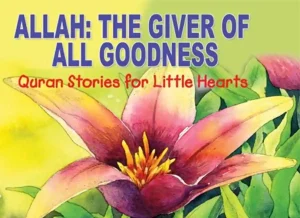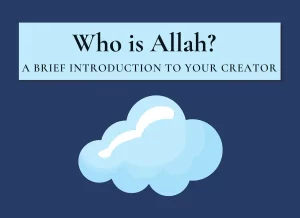Blessings of Zakah(Excellence of Salat ‘Alan Nabi)
Zakat Facts | Importance of Zakat| Benefits of Zakat-The Beloved Rasool (PBUH) has said: When the people who love each other for the sake of Allah meet each other, shake hands and send Salat upon Nabi , the past and the future sins of both are forgiven before they separate.
A basic pillar of Islam
Dear Islamic brothers! Zakah is a basic pillar of Islam. The Beloved Rasool (PBUH) has stated, ‘The foundation of Islam is on five acts: To testify that there is none worthy of worship except Allah and Muhammad is His Rasool; to offer Salah; to pay Zakah; to perform Hajj; and to observe the Sawms [fasts] of Ramadan.’ (Sahih Bukhari, vol. 1, pp. 14, Hadees 8) The significance of Zakah can be observed by the following fact: Salah and Zakah have been mentioned together in the Holy Qur’an 32 times. (Radd-ul-Muhtar, vol. 3, pp. 202)
Besides this, the fortunate Zakah-giving person receives great blessings and benefits of this world and the Hereafter (which have been mentioned in the later pages of this book). Zakah is Fard It is proven from the Holy Qur’an and Sunnah that Zakah is Fard.
Allah has stated in the Holy Qur’an: And keep Salah (obligatory prayer) established and pay Zakaat (obligatory charity) [Translation of Quran (Kazn-ul-Iman)](Part. 1, Surah Al-Baqarah, Ayah 43) Explaining this Ayah in Tafseer Khaza’in-ul-Irfan, Maulana Sayyid Muhammad Na’eemuddin Muradabadi (who passed away in 1367 Hijri) has stated: This Ayah is regarding Salah and Zakah being Fard.
O Beloved, take Zakaat from their wealth, by which you may cleanse them and make them pure [Translation of Quran (Kanz-ul-Iman)](Part. 11, Surah At-Taubah, Ayah 103)
Explaining the aforementioned Ayah in Tafseer Khaza’in-ul-Irfan, Maulana Sayyid Muhammad Na’eemuddin Muradabadi has stated: There are many opinions of the Mufassireen [Quranic exegetes] about the meaning of the word ‘Sadaqah’ that has been mentioned in the Ayah. One opinion states: Sadaqah was not Wajib, which the people who have been mentioned in the previous Ayah had given as expiation.
The second opinion is that this ‘Sadaqah’ refers to that Zakah which was Wajib [compulsory] upon them. They repented and tried to pay Zakah, so Allah commanded to take it. Imam Abu Bakr Raazi Jasaas has given preference to the opinion that ‘Sadaqah’ refers to Zakah. (Khaazi Ahkaam-e-Qur’an)

Narrations regarding Zakah being Fard
- Sayyiduna Abdullah Ibn Umar has narrated that the Beloved Rasool said: Allah has commanded me to fight against people until they testify that there is none worthy of worship except Allah and Muhammad is the true Rasool of Allah ; offer Salah properly; give Zakah; thus, if they do accordingly, their wealth and lives will become protected from me except for the punishment which Islam has made compulsory upon them (on account of any Hadd). (Punishment which is fixed by Shari’ah for any sin) (Sahih Bukhari, vol. 1, pp. 20, Hadees 25)
- When the Beloved Rasool sent Sayyiduna Mu’az towards Yemen, he said: Tell them that Allah has made Zakah Fard in their wealth; it should be taken from the wealthy and given to the Fuqarah [the poor]. (Sunan-ut-Tirmizi, vol. 2, pp. 126, Hadees 625)
- Sayyiduna Abu Hurairah has stated that when Rasoolullah (peace be upon him) left this world and Sayyiduna Abu Bakr became the Khalifah and [the people of] some Arab tribes became Murtads (Religious apostates )(as they denied Zakah to be a Fard act), Sayyiduna Umar said: How will you fight with the people despite the fact that Rasoolullah said, ‘I have been commanded [by Allah ] to do Jihad against people until they recite لا لهٰ لا. He, who has agreed to لا لهٰ لا, has protected his life and his wealth from me except for the right of someone, and [now] his accountability will be carried out in the court of Allah ‘. (I.e. these people say لا لهٰ لا, so how Jihad will be done against them?)
Sayyiduna Abu Bakr said: By Allah ! I will do Jihad against the person who will differentiate between Salah and Zakah (that he accepts Salah to be Fard but denies Zakah being Fard) and Zakah is the right of wealth. By Allah ! If they stopped even a rope (that is Wajib upon them to give) which they would give in the blessed era of Rasoolullah , I will fight against thSayyiduna Umar has said: By Allah ! I saw that Allah has opened the chest of Siddeeq (i.e. he perceived it through Divine guidance). At that time, I also realised that it is Haq [the truth](Sahih Bukhari, vol. 1, pp. 472 – 473, Hadees 1399 – 1400)
Explaining the aforementioned Hadees, Mufti Muhammad Amjad Ali A’zami (who passed away in 1367 Hijri) has stated: From this Hadees, we came to know that only reciting the Kalimah is not enough for Islam unless a person agrees to all Zarooriyaat-eDeen. The reason why Ameer-ul-Mu’mineen
| 01 | VIRTUES AND BENEFITS OF PAYING ZAKAH |
Farooq-e-A’zam discussed it is that he was previously unaware that those people have denied Zakah to be a Fard act; he thought that they do not pay Zakah, so they have become sinners because of it, not Kafir; therefore, Jihad could not be done against them. However, when he came to know about it, he has said: I realised that what (Sayyiduna) Siddeeq understood and did is Haq [the truth].
When did Zakah become Fard?
Zakah became Fard in 2 Hijri before the Siyam [fasts].(Durr-ul-Mukhtar, vol. 3, pp. 202)
What is the ruling on denying Zakah to be a Fard act? It is proven from the Holy Quran that Zakah is Fard; the one who denies it is a Kafir. (Fatawa-e-Hindiyyah, vol. 1, pp. 170)
Zarooriyaat-e-Deen refers to those fundamental beliefs and practices of Islam which are known by all the Ulama [Islamic scholars] and common people [close to Ulama]. For example, the Oneness of Allah , Nubuwwah of the blessed Ambiya Salah, Sawm [fast], Hajj, Jannah, Hell, resurrection on the Day of Judgement, accountability, etc. (Kufriyyah Kalimaat kay baray mayn Suwaal Jawaab, pp. 41)
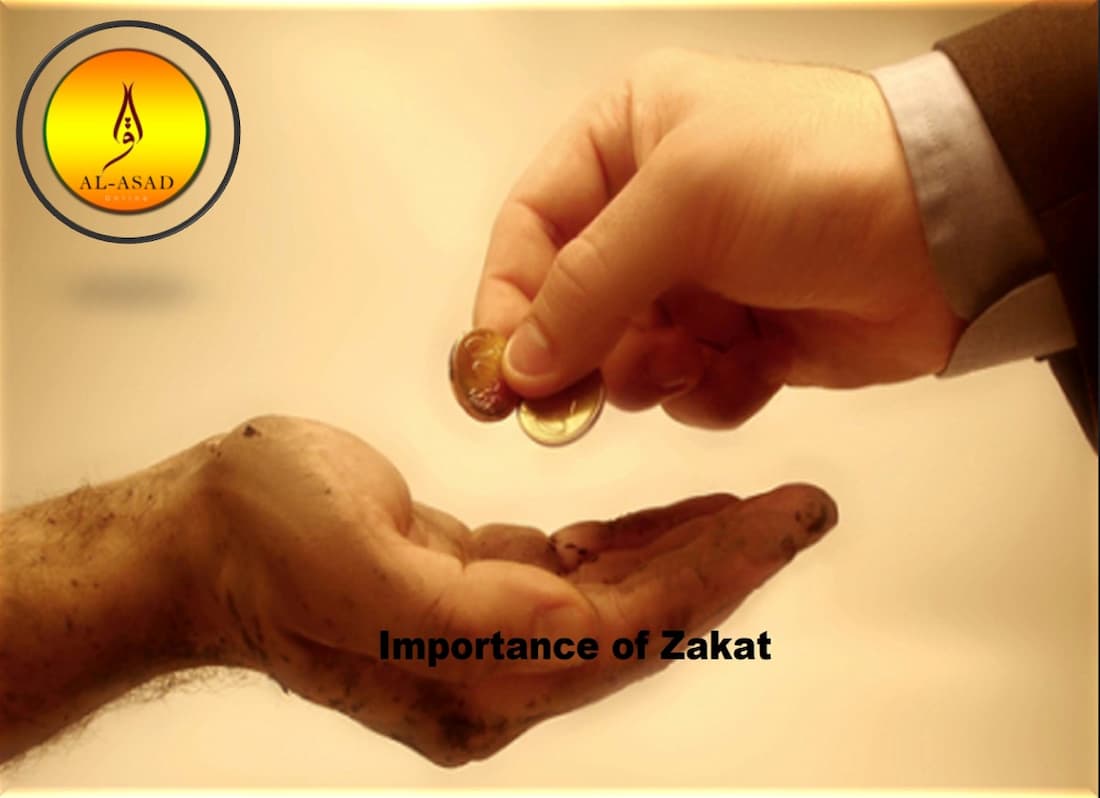
VIRTUES AND BENEFITS OF PAYING ZAKAH
1. Means of completion of Iman
Paying Zakah is a means of completion of Iman as the Beloved Rasool (peace be upon him) has said: The completion of your Islam is that you pay Zakah of your wealth. (Attargheeb Watterheeb, vol. 1, pp. 301, Hadees 12)
At one place, the Beloved Rasool (peace be upon him) has said: He who believes in Allah and His Rasool, it is compulsory on him to pay Zakah of his wealth. (Al-Mu’jam-ul-Kabeer, vol. 12, pp. 324, Hadees 13561)
2. Mercy of Allah descends
The Mercy of Allah descends upon the one who pays Zakah. It is stated in Surah-al-A’raaf:
And My Mercy encompasses all things, so I shall soon decree favours for those who fear and pay Zakaat. [Translation of Quran (Kanz-ul-Iman)](Part. 9, Surah Al-Aa’raf, Ayah 156)
3.Attaining Taqwa [piety] and asceticism
Taqwa is attained by giving Zakah. This is also one sign amongst the signs of Muttaqeen [pious people] mentioned in the Holy Quran. It is stated: And spend in Our path from the sustenance we have bestowed (upon them). [Translation of Quran (Kanz-ul-Iman)](Part. 1, Surah Al-Baqarah, Ayah 3)
4. Way of success
The Zakah-giving person becomes amongst those who are successful, as in the Holy Quran, Zakah has also been mentioned amongst the acts of successful people. It is stated: Undoubtedly, the believers reached their goals. Those who humble themselves in their Salah. And who do not incline towards vain talk. And who are active in the payment of Zakaat. [Translation of Quran (Kanz-ul-Iman)](Part. 18, Surah Al-Mu’minun, Ayah 1- 4)
5.He who deserves the help of Allah
Allah helps the one who pays Zakah. It is stated: And undoubtedly, Allah will definitely help the one who helps His religion. Indeed Allah is surely All Powerful, Ever Dominant. Those people that, if We give them control in the land, would keep Salah established and pay Zakaat, and command virtue and forbid evil, and only for Allah is the end of all matters. [Translation of Quran (Kanz-ul-Iman)](Part. 17, Surah Al-Hajj, Ayah 40-41)
6. He who belongs to the category of good people
Paying Zakah is one of the attributes of those people who frequent the ‘houses of Allah’ i.e. Masajid. It is stated: Only those uphold the Mosques of Allah, who believe in Allah and the Last Day and keep Salah established and pay Zakaat and fear none except Allah; so it is imminent that they will be amongst the people of guidance [Translation of Quran (Kanz-ul-Iman)](Part. 10, Surah At-Taubah, Ayah 18)
7. Sawab of infusing happiness into the hearts of the Islamic brothers
The needs of poor Islamic brothers are fulfilled by paying Zakah and their hearts are infused with happiness.
8.An excellent expression of Islamic brotherhood
The act of giving Zakah is an excellent expression of Islamic brotherhood as by giving Zakah, a Ghani-Muslim [i.e. one who has to pay Zakah] encourages his poor Islamic brother to live in the society with honour. Moreover, the heart of the poor Islamic brother remains protected from the attack of the evils like ill-will and jealousy as he knows that he also has the right in the wealth of his Ghani Islamic brother; therefore, he makes Du’a for blessings in the life, wealth and children of his brother. The Beloved Rasool Salah, Sawm [fast], Hajj, Jannah, Hell, resurrection on the Day of Judgement, accountability, etc. (Kufriyyah Kalimaat kay baray mayn Suwaal Jawaab, pp. 41)
has said: Indeed, a Mu’min is like a building for a Mu’min; one strengthens the other. (Sahih Bukhari, vol. 1, pp. 181, Hadees 481)
9. Manifestation of the saying of Rasoolullah
Zakah plays a very important role in strengthening the brotherhood between Muslims which enhances collectivity in the Islamic society and because of mutual help, Muslims manifest the following great saying of their Beloved Rasool (peace be upon him)ٖ: The example of mutual friendship, mercy and affection of Muslims is like a body; when any part of the body is not well, the entire body joins [i.e. affected by] it in fever and sleeplessness. (Sahih Muslim, pp. 1396, Hadees 2586)
10. Wealth becomes pure
Wealth becomes pure by giving Zakah as it is narrated from Sayyiduna Anas Bin Malik that the beloved Rasool said: Give Zakah of your wealth as it is the one that purifies, it will purify you. (Al-Musnad Lil-Imam Ahmad Bin Hanbal, vol. 4, pp. 274, Hadees 12397)
11. Getting rid of negative attributes
By giving Zakah, a person gets help in getting rid of the bad attributes like greed and miserliness (if he has them in his heart), and he is blessed with the good attribute of generosity.
12. Blessing in wealth
The wealth of the Zakah-giving person does not decrease; in fact it increases in the world and the Hereafter. Allah has stated: And whatever you spend in the path of Allah, He will give more in return. And He is The Best Provider. [Translation of Quran (Kanz-ul-Iman)](Part. 22, Surah As-Saba, Ayah 39)
At another place, it is stated: The example of those who spend their wealth on the path of Allah is similar to a grain which has sprouted seven ears (of wheat) and each ear contains a hundred grains, and Allah may increase this many a time for whomsoever He desires, and Allah is All-Encompassing, AllKnowing. Those who spend their wealth in the path of Allah, and after spending they do not boast of their favour nor taunt; their reward is with their Lord; they shall have no fear nor shall they grieve. [Translation of Quran (Kanz-ul-Iman)](Part. 3, Surah Al-Baqarah, Ayah 261 – 262)
Thus, the Zakah-giving person should give Zakah wholeheartedly, having the firm belief that Allah will give him something better in return. The Beloved Rasool (peace be upon him) has said: Wealth does not decrease by giving Sadaqah. (Al-Mu’jam-ul-Awsat, vol. 1, pp. 619, Hadees 2270)
Although apparently, the wealth decreases but in reality, it increases; like apparently, it seems that a tree loses its leaves and stems when the dead branches are removed from it but this removal of dead branches is actually the cause of its growth. The renowned Mufassir, Mufti Ahmad Yar Khan has stated: The Zakah of a Zakah-giving person keeps on increasing every year; it has been experienced. The farmer, who sows the field with seeds, apparently empties the gunnysacks but in reality, he fills them again along with profit. The gunnysacks in the house get destroyed, being spoiled by mice, weevils, etc.; or it means that keep on spending from the wealth from which Sadaqah is regularly given, it will keep on increasing; [if you] keep on taking out water of the well, it will keep on increasing.(Miraat-ul-Manajeeh Sharah Mishkat-ul-Masabeeh, vol. 3, pp. 93)
13. Protection from evil
The Zakah-giving person becomes protected from evil as the Beloved Rasool (peace be upon him) has said: He who has paid Zakah of his wealth, indeed, Allah has removed evil from him.(Al-Mu’jam-ul-Awsat, vol. 1, pp. 431, Hadees 1579)
14. Source of protection of wealth
Giving Zakah is a source of protection of wealth as the Beloved Rasool (peace be upon him) has stated: Bring your wealth into strong fortresses by giving Zakah and treat your sick people with charity.(Maraseel Abi Dawood ma’ Sunan Abi Dawood, pp. 8)
15. Allah will fulfil the needs
Allah will fulfil the needs of the Zakah-giving people as the Beloved Rasool (peace be upon him) has said: He who fulfils the need of any person, Allah will fulfil his needs in the religion and the world. (Sahih Muslim, pp. 1447, Hadees 2699)
At another place, he has said: He who relieves the worldly suffering of any Muslim, Allah will remove the trouble of the Day of Judgement from him. (Jami’-ut-Tirmizi, vol. 3, pp. 115)
16. The poor make Du’a
The poor make Du’a for the Zakah-giving person due to which the mercy of Allah descends and a person receives the help of Allah as the Beloved Rasool (peace be upon him) has said: You receive the help of Allah and sustenance because of the blessing of the old and their Du’as. (Sahih Bukhari, vol. 2, pp. 280, Hadees 2796)
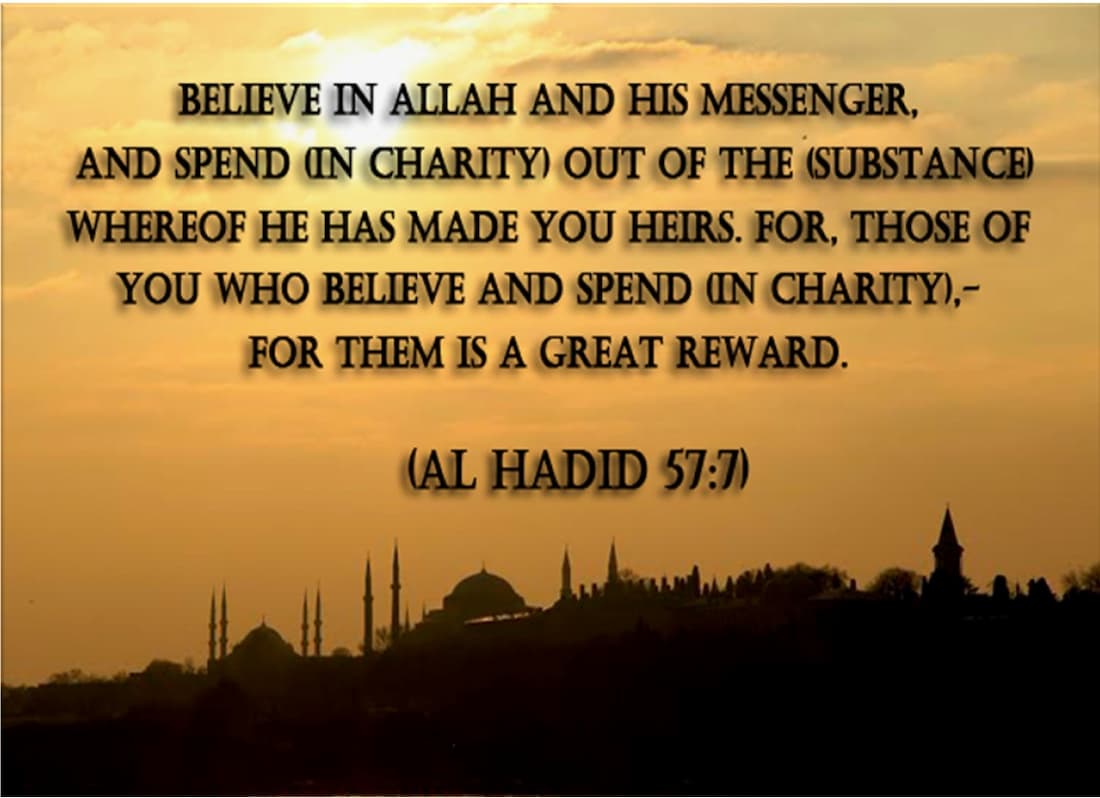
8 points stating the harm of not giving Zakah-Zakat Facts
Dear Islamic brothers! There are many disadvantages of not giving Zakah; some of them are as follows: A person will not receive those benefits which he would have received if he had paid Zakah.
A person will not be able to get rid of the negative attribute of miserliness (if he possesses it). The Beloved Rasool has said: Generosity is a tree in Jannah [Paradise]; he who has become generous has held the branch of that tree. That branch will not leave him until it makes him enter Jannah. And miserliness is a tree in fire; he who has become a miser has held the branch of it. It will not leave him until it makes him enter fire. (Shu’ab-ul-Iman, vol. 7, pp. 435, Hadees 10877) [Not giving Zakah] is a cause of the destruction of wealth as the Beloved Rasool has said: The wealth that has got destroyed in the land and sea, it has got destroyed because of not giving Zakah. (Majma’-uz-Zawaid, vol. 3, pp. 200, Hadees 4335)
At another place, he has said: Zakah will destroy the wealth in which it will be present. (Shu’ab-ul-Iman, vol. 3, pp. 273, Hadees 3522)
Explaining the aforementioned Hadees, Mufti Muhammad Amjad Ali A’zami (who passed away in 1367 Hijri) has stated, ‘Some Imams have stated the following meaning of this Hadees: If Zakah becomes Wajib on a person but he does not pay it and keeps it included in his wealth, then this Haraam will destroy that Halal. Imam Ahmad has stated the following meaning: If a Wealthy person takes Zakah, this Zakah will destroy his wealth as Zakah is for the Fuqarah [Shari’ahdeclared poor people]. Both the meanings are correct.’ (Bahar-e-Shari’at, vol. 1, pp. 871)
The nation which does not give Zakah may suffer from troubles collectively. The Beloved Rasool (peace be upon him) has said: The nation which will not give Zakah, Allah will make it suffer from drought. (Al-Mu’jam-ul-Awsat, vol. 3, pp. 275, Hadees 4577)
At another place, he has said: When people abandon paying Zakah, Allah stops the rain. If quadrupeds were not present on the Earth, even a single drop of water would not fall from the sky. (Sunan Ibn Majah, vol. 4, pp. 367, Hadees 4019)
The person who does not give Zakah has been cursed, as ▪ Sayyiduna Abdullah Bin Mas’ood has narrated: Rasoolullah (peace be upon him) ٖhas cursed the one who does not give Zakah. (Sahih Ibn Khuzaymah, vol.pp. 8, Hadees 2250)
On the Day of Judgement, this wealth will become a cause of punishment for a person. It is stated in Surah-al-Taubah: And those who pile up gold and silver and do not spend in Allah’s Way, give them the glad tidings of a painful punishment. The Day when it (gold and silver) will be heated in the Fire of Hell, and their foreheads and their sides and their backs will be branded with it. ‘Here is what you accumulated for yourselves; so now taste the flavor of your accumulation. [Translation of Quran (Kanz-ul-Iman)](Part. 10, Surah At-Taubah, Ayah 34 – 35)
The Beloved Rasool has said: The person whom Allah has given wealth and he does not pay its Zakah, on the Day of Judgement, that wealth will be converted into the form of a bald snake which will have two spots on its head; that snake will be put around his neck after being made a collar. Then [it] will hold the corners of his lips and say: ‘I am your wealth, I am your treasure.’
Thereafter, the Beloved Rasool (peace be upon him) recited the following Ayah: And never must those who act miserly upon what Allah has bestowed upon them of His grace, think that it is good for them; in fact it is harmful for them; soon what they had withheld will be collars round their necks on the Day of Resurrection [Translation of Quran (Kanz-ul-Iman)](Part. 4, Surah Aal-Imran, Ayah 180) (Sahih Bukhari, vol. 1, pp. 474, Hadees 1403)
A person will be held accountable severely as the Beloved Rasool(peace be upon him) ٖ has said: The Faqeer [i.e. the poor] will not at all go through the pain of being naked and hungry [i.e. state of extreme poverty] but at the hands of Aghniyah [i.e. the wealthy]. Listen! Allah will hold such wealthy people accountable severely and inflict grievous punishment on them. (Majma’-uz-Zawaid, vol. 3, pp. 197, Hadees 4324) A person may suffer the torment of Hell. The Beloved Rasool (peace be upon him) saw some people on whose front and back there were some pieces of cloth like small loincloths, and like quadrupeds, they were wandering around eating the hot stones of Hell, cactus and extremely bitter, burning, foul-smelling grass. He enquired from Jibra’eel : ‘Who are these people?’ Jibra’eel humbly replied: Those people are over here who did not pay Zakah of [their] wealth; and Allah has not oppressed them; Allah does not oppress [His] servants. (Az-Zawajir, vol. 1, pp. 372)
At one place, the Beloved Rasool ٖhas said: The nonpayer of Zakah will be in Hell on the Day of Judgement. (Majma’-uz-Zawaid, vol. 3, pp. 201, Hadees 4337)
At another place, he has said: Three people will go into Hell before others; one of them is that wealthy person who does not fulfil the ‘right of Allah ’ in [relation to] his wealth. (Sahih Ibn Khuzaymah, vol. 4, pp. 8, Hadees 2249)
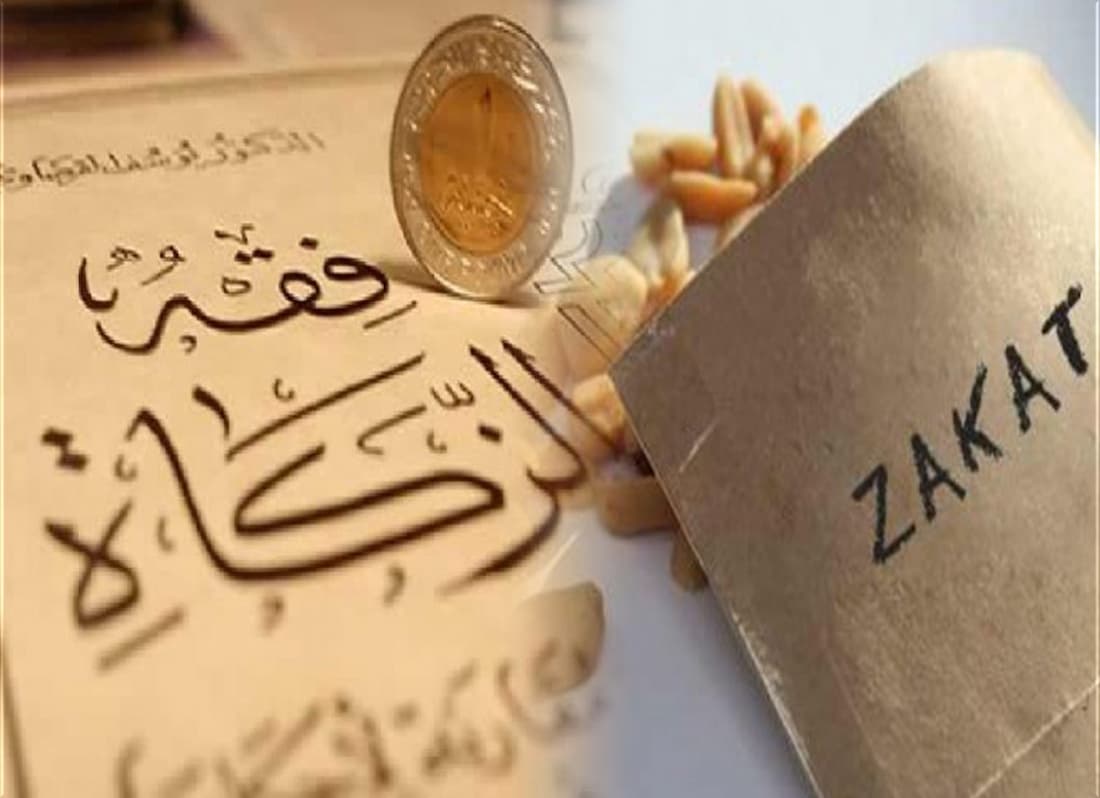
The Definition of Zakah-Zakat Facts | Importance of Zakat| Benefits of Zakat,
That wealth, specified by Shari’ah, is termed as Zakah from which a person discontinues his benefit in every manner and then for the pleasure of Allah , it is given into the possession of such Muslim Faqeer [Shari’ah-declared poor person], who is neither Hashmi ( Bani Hashim refers to the descendants of Sayyiduna Ali, Sayyiduna Ja’far, Sayyiduna Aqeel, Sayyiduna Abbas bin Abdul Muttalib and Sayyiduna Haris bin Abdul Muttalib. The remaining ones who did not support the Beloved Rasool , for example, Abu Lahab; although this Kafir [unbeliever] was also the son of Sayyiduna Abdul Muttalib, but his descendants will not be included in Bani Hashim. (Bahar-e-Shari’at, vol. 1, pp. 931)) himself nor is he a slave freed by any Hashmi. (Durr-e-Mukhtar, vol. 3, pp. 204 – 206)
Why ‘Zakah’ is called Zakah?
The literal meaning of Zakah is ‘Taharah [purity]’, and ‘increment and blessing’. Since, in reality, Zakah becomes a cause of Taharah, increment and blessing for the remaining wealth [although it may not be apparent], this is why it is called Zakah. (Durr-e-Mukhtar Wa-Radd-ul-Muhtar, vol. 3, pp. 203)
Types of Zakah
There are basically two types of Zakah:
- Zakah of wealth
- Zakah of people (i.e. Sadaqa-tul-Fitr)
There are further two types of ‘Zakah of wealth’:
- Zakah of gold and silver
- Zakah of trade goods and livestock, and the Zakah of cultivated crops and fruits (i.e. Ushr) (Derived from: Bida’-us-Sana’ Fi-Tarteeb-ish-Shara’, vol. 2, pp. 75) On whom is Zakah Fard?
Giving Zakah is Fard upon every such ‘Aaqil [sane] and Baligh [person who has reached puberty] Muslim who is not a slave and who meets the following conditions:
- He owns the Nisab
- This Nisab is Naami [growing in nature]
- He has Nisab in his possession
- The Nisab is exclusive of his Haajat-e-Asliyyah (i.e. basicNecessities of life)
- The Nisab is exclusive of the money he owes (i.e. he should not owe people such debt that his Nisab will no longer remain if he pays it).
- A year passes on this Nisab. (Bahar-e-Shari’at, vol. 1, pp. 875 – 884)




